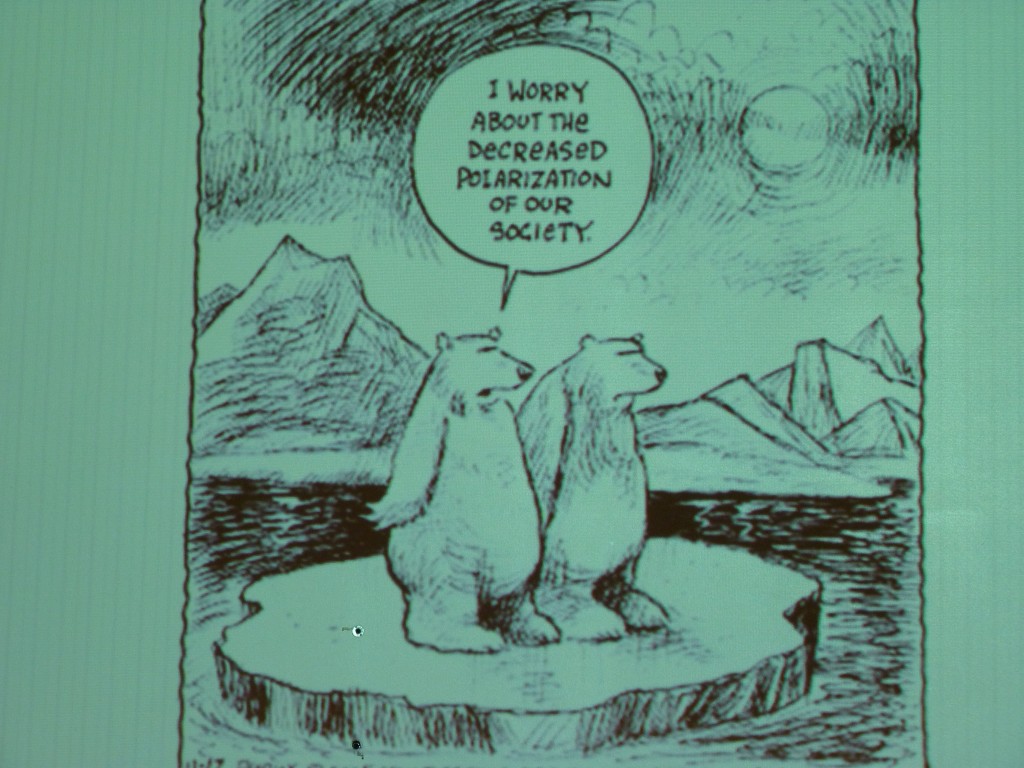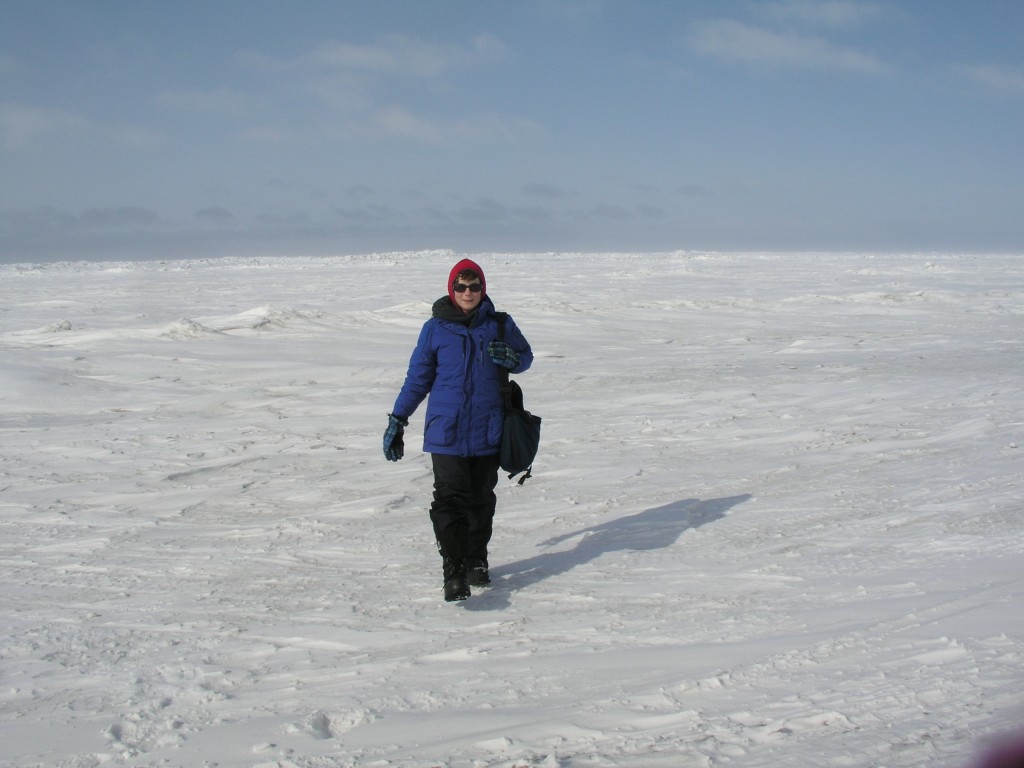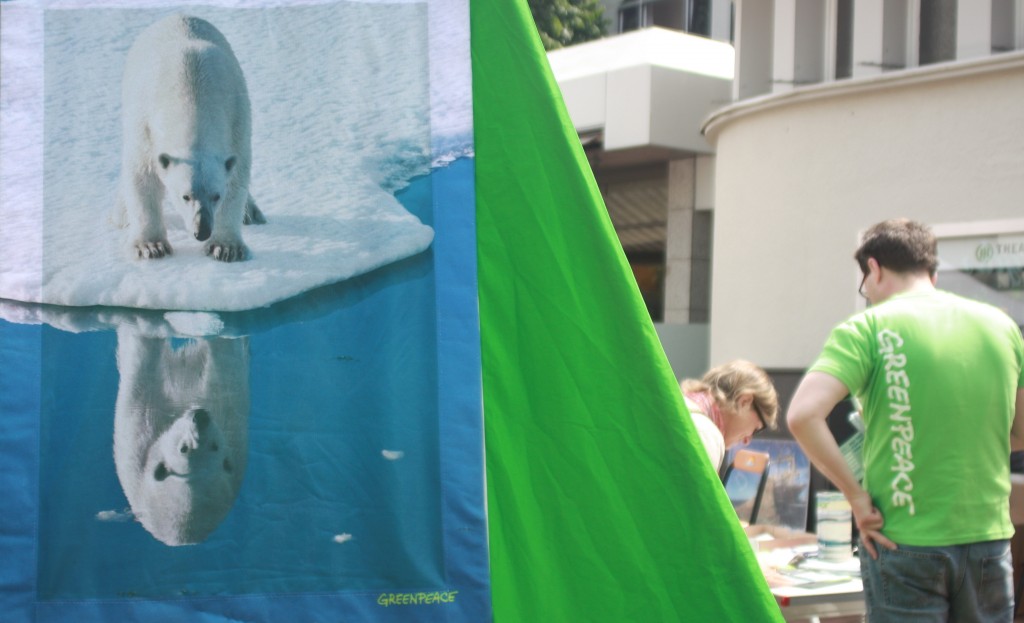Arctic oil – still in the picture
Was it too good to be true? The euphoria over the US administration’s moves to protect the Arctic National Wildlife Refuge was dampened somewhat when, just two days later, it released a long-term plan for opening coastal waters to oil and gas exploration, including areas in the Arctic off Alaska. The plan excludes some important ecological and subsistence areas from potential drilling, but it still includes some Arctic areas, including parts of the Beaufort and Chukchi Seas.
Margaret Williams, managing director of WWF US Arctic Programs, told Deutsche Welle, she welcomed in particular the decision to protect the biological hotspot of Hanna Shoal from risky offshore drilling. The Hanna Shoal is a key site for walruses and other animals.
But she stressed other areas of the US Arctic were still subject to oil exploration. The new program will not affect existing leases held by Shell in the Chukchi Sea. The company’s efforts have been the subject of controversy, not least since the grounding of the drill rig Kulluk.
Williams says the problem with the new proposal in general is that it “keeps drilling for oil in the US Arctic offshore in the picture”. With the US poised to take the helm of the Arctic Council, she called for protecting biodiversity to be a top priority for all Arctic nations.
Oil: valuable asset or liability?
It comes as no surprise that Alaskan state politicians and the oil industry promised to fight planned restrictions, saying they were harmful to the economy. But this brings us back to the question of whether the search for new oil in the Arctic makes any sense at all at a time when oil prices are at a record low and the USA is producing plentiful supplies of shale gas.
Bloomberg financial news group quotes financial experts as saying the world’s biggest oil producers do not have “bulletproof business models”, and cites financial cutbacks by BP, Chevrol and Shell:
“The price collapse hobbles a segment of the industry that had already been struggling with years of soaring construction costs, project delays, missed output targets and depressed returns from refining crude into fuels”, analyst Anish Kapadia told Bloomberg.
Climate paradox
Conservation groups stressed the need for a different focus, in the year when the USA has pledged to help create an effective new world climate agreement in Paris in November.

Cartoon by psychologist Per Espen Stoknes, BI Norwegian School of Management.( I photographed it at a workshop on climate change psyschology)
“Rather than opening more of the Arctic and other US coastal waters to drilling for dirty energy, the US needs to ramp-up its transition to a clean energy future. As the Administration works to rally international leaders behind a bold climate pact in 2015, decisions to tap new fossil fuel reserves off our own coasts sends mixed signals about US climate leadership abroad, ” said WWF’s Williams.
We know the Arctic is being hit at least twice as fast as the global average by climate change. The ecosystem is already under huge pressure. The Arctic itself is in turn of key importance to global weather patterns. And burning more oil would exacerbate the situation even further.
“We would like to think that we can shift our energy paradigm to clean energy so that we don’t have to take every last bit of oil out of the earth, especially out of the oceans”, said Jackie Savitz from the Oceana Campaign croup.
Studies by the group and by WWF indicate that developing renewable energy technologies such as offshore wind could create more jobs than hanging on to fossil fuel technologies.
Oil spill concern
In addition to the climate paradox of the hunt for new fossil fuels, environmentalists are concerned about the possible impact of an oil spill. Their opposition is not limited to the Arctic. Proposals to open up large areas of coastal waters including some parts of the Atlantic for the first time have also aroused anxiety about possible pollution. But the Arctic is of particular concern because of its remoteness, harsh weather conditions and seasonal ice cover, which is not likely to disappear soon even with rapid climate change:
“Encouraging further oil exploration in this harsh, unpredictable environment at a time when oil companies have no way of cleaning up spills threatens the health of our oceans and local communities they support. When the Deepwater Horizon spilled 210 million gallons of crude oil five years ago, local wildlife, communities and economies were decimated. We cannot allow that to happen in the Arctic or anywhere else,” said WWF expert Williams.
White House senior counsellor John Podesta justified the ban on oil exploration in the ANWR by saying “unfortunately accidents and spills can still happen, and the environmental impacts can sometimes be felt for many years”. The question is – why should this only be applicable in certain areas? Campaigners say it also applies to the other areas now designated by the administration as “OK” for exploration. For the Arctic in particular, limiting exploration to remote offshore areas does not protect the region against the risk of environmental disaster.

















